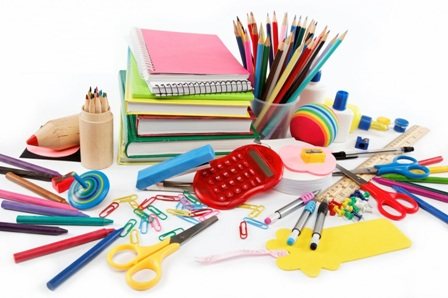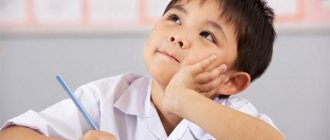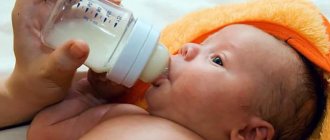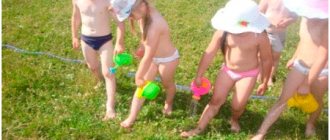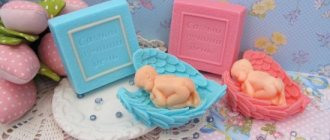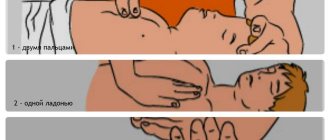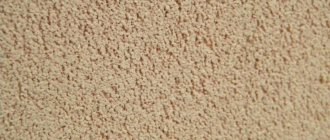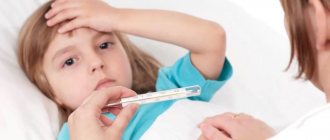Is your child ready for school? What should a child be able to do by 1st grade?
The lag in speech development is a serious obstacle to the full assimilation of knowledge. By the way a preschool child speaks, one can determine the level of his preparation for learning in 1st grade and judge his development as a whole.
The future student must:
- Correctly and clearly pronounce all sounds and words with difficult pronunciation.
- Don't be shy to take part in the general conversation. But there are also shy children who actively maintain conversations with their family and friends.
- Correctly formulate a full answer to a question and learn to ask them correctly yourself.
In addition to the fact that the future student must have well-developed speech and pronounce words and sounds correctly, there are also a number of requirements for today’s preparation of a preschooler.
Comment from pediatrician Oksana Olegovna Ageeva: Psychological preparation, as well as early teaching of a child basic, very basic knowledge, is necessary before school. Of course, there must be a measure in any matter, and a child should not sit for days in front of books and notebooks, honing his skills.And you always need to focus on your child’s abilities and select an individual approach to teaching each one.
Clothes for school
There are educational institutions that have no requirements for the appearance of children. But in most cases, it is mandatory, if not the presence of a school uniform, then the presence of a black bottom and a white (light) top. As a rule, the outfits of boys and girls are different, and boys’ outfits are much cheaper than girls’.
Outfit for a first grader
A boy who is going to first grade needs to purchase the following items of clothing (if the school does not have a generally accepted uniform):
- Trousers. You can immediately take care of buying thin ones (from personal experience, I’ll say it’s better to take two trousers at once), and warm ones for the cold season (just one is enough).
- Shirt. It is advisable to buy both short and long sleeves. In this case, you need to take care of purchasing two shirts of each option at once. Since the child may get dirty, a change will be needed.
- Blazer. As a rule, one piece of such clothing is enough. Some parents buy a vest in addition or instead.
- Half-ver. You can buy a long sleeve shirt instead for the cold season.
- Tracksuit or other clothing for physical education.
- Socks. Choose ones that will look good with the child’s clothes, will be made of natural fabric, and be sure to be thin. It is better to take with a reserve, at least five pairs.
- You can also buy a bow tie or a bow tie for a boy.
Clothes for a first grader
The little fashionista will need:
- Blouse. Since girls are more neat, you can get by with just one blouse. But some parents buy two blouses to have a change.
- Trousers. In the case of a girl, you can only buy a warm option. This is due to the fact that in the warm season the girl will wear a skirt.
- Skirt.
- Blazer.
- A turtleneck that will serve as a replacement for a blouse in the cool season.
- Sundress.
- Sports suit.
- Tights. Buy at least three pieces.
- Socks. You will need five pairs.
- Don't forget to also buy rubber bands, bows and hairpins.
School uniform
It is common practice in many schools. Therefore, it is advisable to go to the future class teacher and find out what the rules are in their school. Today, the uniform impresses with its variety of colors; in addition, you can find checkered or striped outfits.
When purchasing a form, pay attention to the material. It is very important that it is made of natural fabric. When going shopping, take your child with you. It is important to try it on.
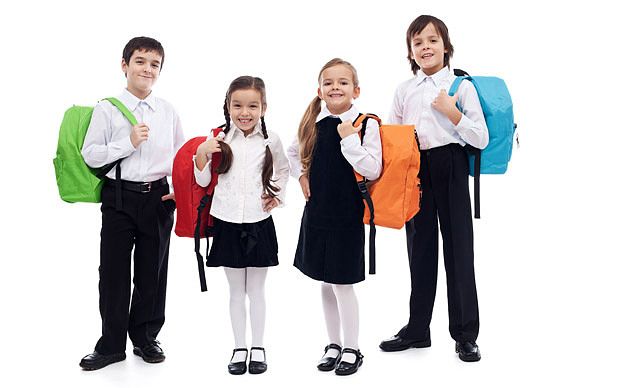
Knowledge that a child should come to 1st grade with
| Achievements in general development | Preparing to become a first-grader, the future student must:
In addition, a preschooler should be able to recite his favorite poems, fairy tales or interesting stories, and come up with short stories based on pictures. A preschooler should be able to distinguish fruits from vegetables or berries, trees from shrubs, domestic animals from wild animals. The future student must know the names of plants, birds or animals that are common in the area where he lives |
| Level of development of mathematical knowledge | A future first-grader well prepared for school should:
|
| Reading and writing skills | Today, no one is surprised by the fact that most children who sit down at school for the first time can read. Some were specially taught by their parents, while others learned to put letters into separate syllables or words on their own. A preschooler, who can be called prepared for learning in 1st grade, already has some knowledge of the Russian language:
If the development of fine motor skills in a future first-grader corresponds to his age, then he has good use of his hands and by the time he starts school he can already:
|
What documents are needed for school: admission to 1st grade in 2020
The next important question is what documents need to be collected for school. According to clause 9 of the Procedure for 1st grade, the organization engaged in educational activities must provide:
- Statement. It must include information about the child, his place of birth, and residential address.
- Information about parents or legal representatives. Their place of residence and contact information.
- Child's birth certificate. Additionally, a certificate of place of registration is attached.
All this is provided to the head of the institution in writing. Parents or guardians must also provide proof of identity. This is a passport of a citizen of the Russian Federation. If not, a temporary certificate is required. If one of the parents came from another country, a passport of a foreign country.
How to find out if your child is psychologically ready for school
So that from the first days of school, classes do not turn into an unbearable burden for the child, you need to pay attention not only to the initial knowledge with which the child goes to first grade. A big role in successful learning is played by the little person’s psychological readiness to join a new team and learn .
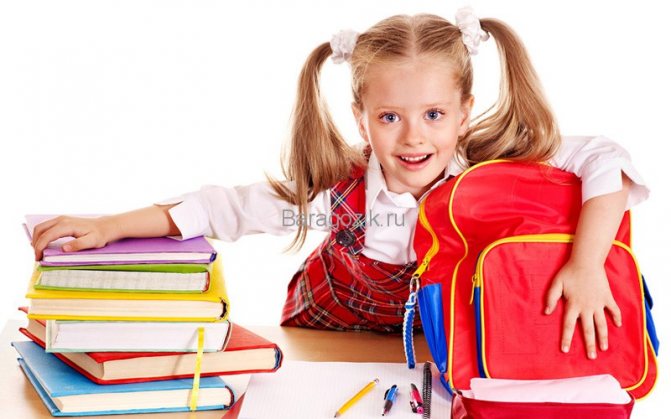
A child's psychological immaturity can cause learning difficulties. A problem for a first-grader can be either a lack of understanding of a subject or his restlessness and inattention. Therefore, the task of parents and teachers in kindergarten is not only to teach the preschooler the knowledge necessary for entering school, but also to prepare him psychologically.
| Developing a child’s thirst for knowledge and perseverance | It can be difficult for a child to concentrate on the school curriculum because he simply cannot sit quietly for 30-45 minutes in class. Therefore, before going to school, it is important not only to learn the alphabet with your child or teach him to count. It is necessary to develop perseverance and a desire to learn new things in preschool children . |
| Only knowledge is the key to success in life | The future first-grader needs to be explained that he is going to school not because it is so and all children go to school, but because only the knowledge acquired during the learning process will help him in the future to become a worthy and successful person and achieve great success in life. |
| Studying at school is a responsible and important task | A child who is about to become a first-grader needs to be explained that studying at school is the most important and responsible task. A child should be attracted to school life not only by its external attributes - a beautiful uniform and a brand new briefcase, but also by the opportunity to learn something interesting every day, enriching his life with new knowledge and impressions . |
Unfortunately, our children were left with no choice when schooling was introduced almost everywhere from the age of 6.
Therefore, only the attention and care of loved ones will help a child who is not psychologically ready for school to overcome difficulties at the first stage of education.
How much does it cost to get a child ready for school?
Now about the approximate cost. An important purchase is a briefcase. It must be correctly selected, optimally with an orthopedic back. The cost of a quality backpack varies from 4,000 to 6,000 rubles. As for the office, it will cost approximately 2,500 rubles (depending on the region of residence). Approximate cost of office:
- notebooks - from 15 rubles per piece (without a picture on the cover 10 rubles);
- diaries - from 80 rubles;
- pens and pencils - from 10 rubles;
- watercolor paints and brushes - from 100 rubles;
- multi-colored paper - 40 rubles;
- multi-colored cardboard - 100 rubles;
- pencil case - from 100 to 250 rubles;
- sketchbook for 32 sheets - 50 rubles;
- wooden ruler - 20 rubles;
- PVA - 30 rubles;
- rounded scissors - 50 rubles.
Now let’s talk about how much it costs to prepare a child for school in terms of clothes.
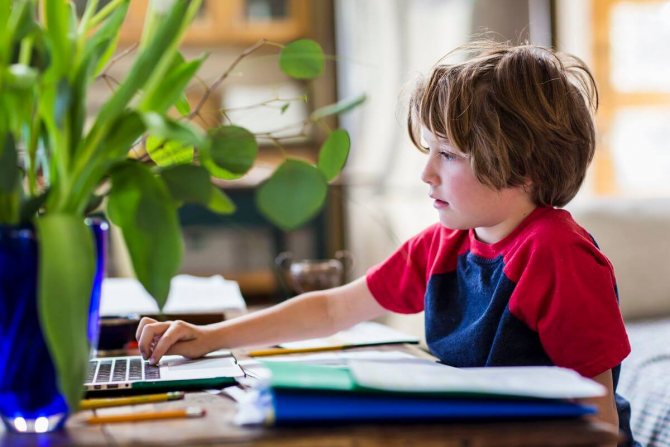
For boys the cost will be as follows:
- jacket - 4000 rubles;
- vest for every day/dress - 1800/1100 rubles;
- trousers - 2000 rubles for one pair.
The most expensive thing is a jacket. But if the educational institution does not adhere to uniforms, getting your son to school can be done on a budget. You can wear turtlenecks instead of a jacket. Instead of trousers with arrows - denim trousers.
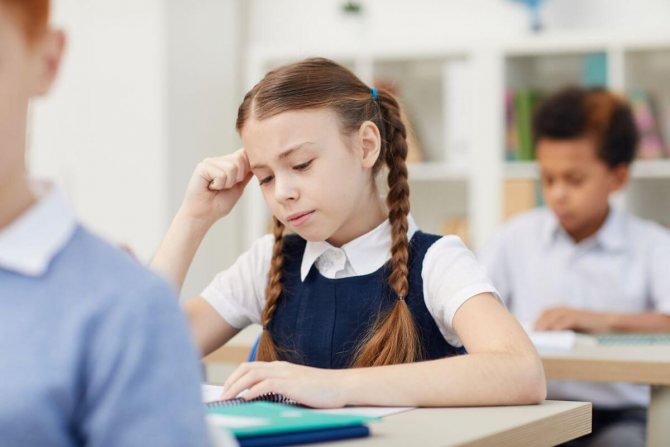
Approximate cost for girls:
- jacket - 2400 rubles;
- skirt - from 1000 rubles;
- sundress - 3200 rubles;
- vest for every day/holiday - 1500/1200 rubles.

Some advice for parents of first-graders
- Do not scold your child if something is not going well with his studies . Find out the reason why the child did not learn this or that material and help solve the problem.
- Never tell your child that he is stupid and incapable of learning . If the child cannot cope with any task, you should not scold, but help the child in every possible way and figure out the problem.
- There is no need to compare your child with other, more capable students . This will not help the child learn better, but will only lower his self-esteem and lead to complexes.
To ensure that your child has as few problems as possible with learning in 1st grade, prepare him gradually, starting long before the moment when the school doors open for him for the first time.
What you need for physical education
When buying your child shoes and clothes for everyday wear at school, you need to think about attire for physical exercise. It happens that the school has some special requirements. For example, they may say that all children should have the same color tracksuit. If you don’t have any special requirements, then you can buy a good tracksuit, a T-shirt and a golf shirt for the cold season. Some parents buy sweatpants and a T-shirt instead of a suit. Or just shorts with a T-shirt.
But what is worth thinking about is the right shoes. You can buy sneakers or sneakers. But be sure to think about which option will be more comfortable for your child. You also need to understand that all these accessories need to be put somewhere. Therefore, you need to buy a bag or pouch that the child will carry with him and can contain everything he needs for physical education.
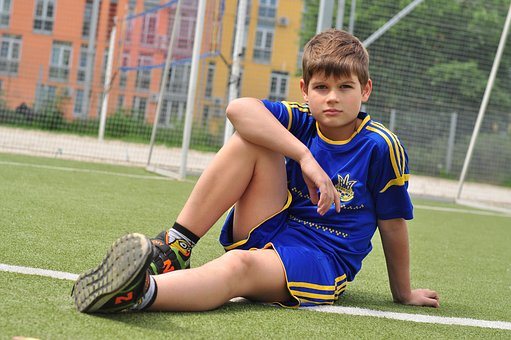
When to go shopping
In fact, you can start buying school supplies even a year before first grade. It’s just worth considering that some schools have certain requirements for a diary and notebook. Therefore, if it is easier for you to make purchases gradually, then it is better to go to the selected institutions and find out if there are any requirements there. Some parents make purchases only after landing, when something is already known. But I advise you to purchase school uniforms and shoes no earlier than a month before the start of the school year. Children grow, shoe and clothing sizes change. Also, you should not buy for growth. Your baby is already facing major life changes and a period of adaptation, so there is no need to complicate things even more.
When my son entered first grade, I planned to do some shopping a month before the school year started. What a surprise I was when I found out that my mother spent a year buying everything she needed for school. And she was right. We needed almost everything in the first month.
Now you know what you need to get your child ready for first grade. As the school year begins, you may also be told about the need to purchase printed notebooks and even some textbooks. You can also buy your child a lunch box, a special drinking bottle, and even a thermos for the cold season. Remember that buying shoes, clothes and a backpack requires fitting, so don’t be lazy to take your child with you when you go shopping. Successful purchases and an easy first school year for your child!
Office
- Notebooks with 12 sheets. Take 15 pieces each in a checkered and oblique line.
- Folder for notebooks. Although my son didn't find it useful. At home we put notebooks in it, but at school Nikita constantly ignored her and simply stuffed the notebooks into his backpack.
- Covers for notebooks and textbooks. Choose a dense option.
- Pencil case. The child will be interested if you buy a folding version. There, in addition to the necessary pen and a simple pencil, there will also be colored pencils and felt-tip pens. A first-grader will be interested in using such a pencil case.
- An eraser and sharpener, a ruler, a pen and a simple pencil if you bought a pencil case without filling. In addition, it is important that the child also has a spare pen.
- Fan with numbers for math lessons. The same may be needed with the alphabet.
- Diary. You need to buy one with a thick cover.
Supplies needed for fine arts classes:
- Sketchbook.
- Tassels. Buy at least two options: one in a large size and the other in a smaller size.
- Watercolors or gouache. In some schools, the teacher herself says which is preferable.
- A sippy cup. A very convenient device, the baby will not accidentally spill water.
- Palette. With its help, the child will be able to mix colors.
- Plasticine. You can get by with a set of six colors, but I will say from personal experience that it will be much more interesting for a child to create his own crafts using a wide variety of colors.
- Board for plasticine.
- Tools needed for sculpting.
For a labor lesson, a first grader will need:
- A folder specifically designed for such a school subject.
- Colored paper, cardboard.
- White cardboard.
- Lining oilcloth.
- Scissors with safe, rounded ends.
- Glue. It is advisable for a child at this age to purchase it in the form of a pencil, and not in a bottle.
- Natural material. To do this, you don’t have to spend money; you need to collect and dry leaves, cones, acorns and chestnuts for a long time.
